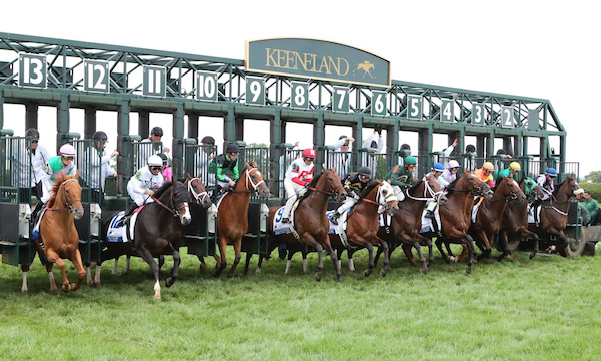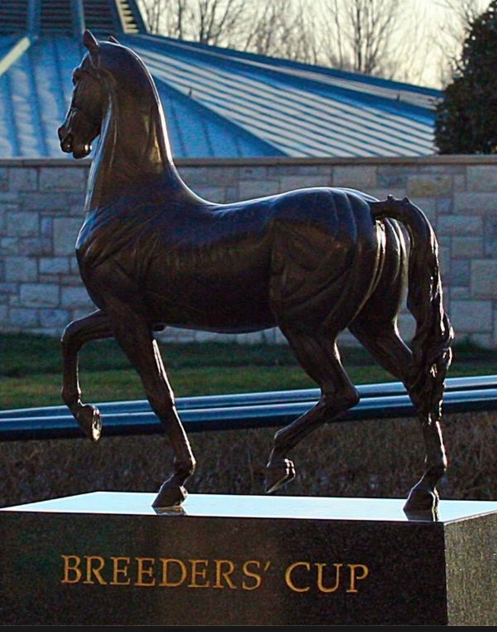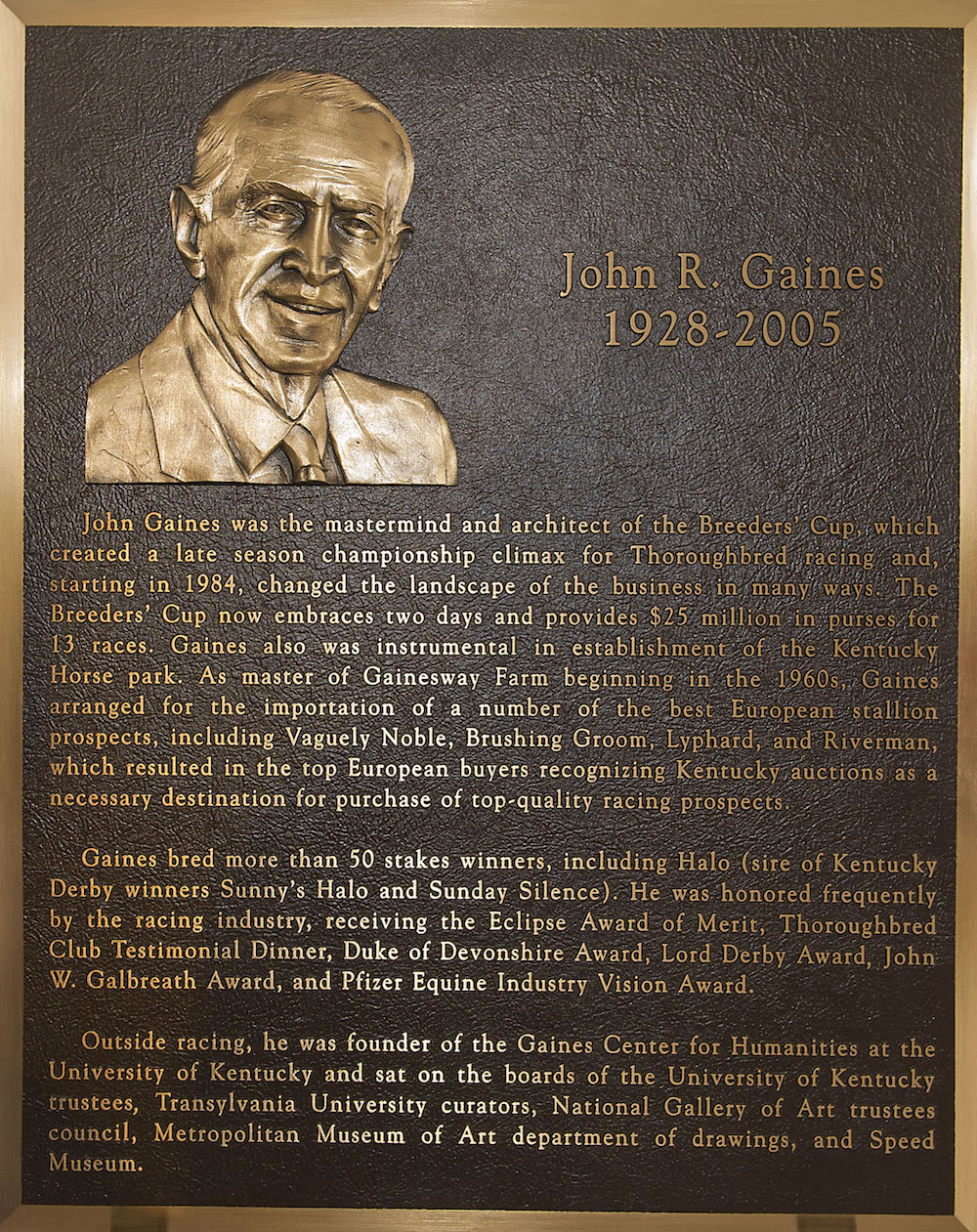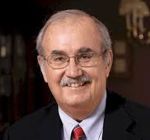The visionary horseman who dreamed up the Breeders’ Cup never foresaw the event being held at Keeneland, even though his farm was on the Paris Pike and he was a pillar of the breeding establishment. You can trust me on this because I was there in the beginning.
I became friends with John Gaines while doing a piece on him for the late, lamented Courier-Journal Sunday magazine. He was different from most horsemen because of his eclectic tastes. He could discuss art, literature, and history as easily as he could the science of breeding.
Before he was honored at the Kentucky Derby Festival’s “They’re Off” luncheon in 1982, Gaines called two writers – myself and Joe Hirsch of The Daily Racing Form – to make sure we were there. He promised a special announcement that would be a “scoop” for our readers.
And it was here that he unveiled the plan that was to become the Breeders’ Cup. As Gaines saw it, the event would be thoroughbred racing’s equivalent of the Super Bowl, a single day of high-quality races with huge purses, capped by a sort of national championship race that eventually became was called The Classic.

He thought it vital that the program be televised by one of the “Big Three” networks that then controlled national TV – NBC, CBS, and ABC – and that the event be held at different venue every year. The driving idea was to expose the game to new fans in the hope of rebuilding its withering fan base.
The next day I walked into the Churchill Downs pressbox and immediately ran into the noted Andy Beyer of The Washington Post. “Nice column today,” Beyer said, “but you know it’ll never work, don’t you?”
Well, it was only two and a half years later that Beyer and I both were in the pressbox at Hollywood Park to see Gaines’ vision fulfilled in the inaugural Breeders’ Cup. Televised nationally by NBC, the event reached a rousing conclusion when Pat Day rode the longshot Wild Again to an exciting and improbable victory in the first Breeders’ Cup Classic.
As the years went on, the event became almost as much a fixture on the national sports calendar as the Triple Crown races. Just as Gaines had envisioned, the Breeders Cup was held at the nation’s biggest and best tracks – Belmont Park in New York, Santa Anita in California, Gulfstream Park in Florida, etc. But nobody did it better than Churchill Downs, home of the Kentucky Derby.
Considering that the Derby routinely drew more than 125,000, it was a piece of cake for Churchill to handled the Breeders’ Cup crowds, which usually range from 45,000 at the smaller tracks to 80,000 at the larger ones. The horsemen, even the ones from Europe, liked Churchill’s central location.
But what really set Churchill apart from any other venue was the way the city and state embraced the Breeders’ Cup. Just another big event in New York or Los Angeles, it took over the town when it came to Louisville. The media coverage was unparalleled, as was the way the city’s business community – hotels, restaurants, rental-car companies, etc. – got behind it.
But then new leadership came along at both the Breeders’ Cup and Churchill Downs, and the relationship began to unravel.
In the early days, both organizations were dominated by horsemen who had a vested interested in the success of both. But gradually the horsemen were replaced by corporate suits who cared only about the bottom line. Never mind what’s best for the horsemen, the sport, or the state’s business community. All that mattered to both was the almighty dollar.
From the beginning, the Breeders’ Cup hasn’t necessarily been a good financial proposition for the host track, which gives the Breeders’ Cup control of the best seats and other revenue streams in exchange for the honor of hosting the event and the recognition that comes with it.
Churchill never liked the arrangement, but went along for the good of the game. But that changed when Bob Evans was hired to run Churchill Downs, Inc., with includes the landmark track in Louisville, tracks in other states, and various gambling platforms.

Evans and his suits told the Breeders’ Cup it wanted a bigger cut of the profits. The Breeders’ Cup said it wasn’t going to change its formula and give one track special concessions. Each side dug in its heels, and so the Breeders’ Cup hasn’t been held at Churchill since 2011. One year the track backed out of its agreement to host, forcing the Breeders’ Cup to switch plans and go to Santa Anita.
This, of course, is typical of the way Evans and his suits have run Churchill. Even so, nobody can beat Churchill when it comes to money-grubbing. They honored the memory of the great writers who helped build the Derby by making Churchill the only track in North America to not have a press box. They thanked many of the local fans who supported Churchill for years on a year-round basis by taking away their Derby boxes so he can turn them over to corporations. And they jacked up prices to the point that the $2 bettor can’t afford to attend the races anymore, much less the Derby and Oaks.
When it became apparent that neither side was going to budge, the state’s most prominent horsemen – the rightful heirs to John Gaines’ legacy – finally got fed up. They wanted the Breeders’ Cup back in Kentucky, so they began looking at Keeneland as an alternative.
Yes, the track didn’t have facilities to handle a Breeders Cup crowd. Heck, anytime more than 25,000 came to Keeneland, it began to feel crowded in the concessions and parimutuel lines, not to mention the rest rooms. And what about the traffic? Wouldn’t there be a monstrous jam on U.S. 60, the road between Versailles and Lexington?
But demonstrating the resolve that characterized Gaines, A.B. “Bull” Hancock, John Galbreath, Leslie Combs II, Albert Clay, and many other breeders who made Central Kentucky the thoroughbred mecca of the world, they decided they wouldn’t be held hostage by Churchill Downs and would find ways to make the Breeders’ Cup work at Keeneland.
It was a huge gamble and the payoff won’t be determined until Saturday evening, after American Pharoah will attempt to add the Breeders’ Cup Classic to the Triple Crown in the final race of his remarkable career. The betting is about evenly divided between those who think it will be a disaster and those who believe Keeneland will pull it off with the track’s trademark class and style.
And then, of course, there are those who can’t help but wish that this year, of all years, the Breeders’ Cup should be held at Churchill. Even with added seating, Keeneland was forced to cap attendance at 45,000. At Churchill, it’s probable that Saturday’s card alone could have drawn more than 100,000.

But Churchill isn’t exactly complaining. The track will simulcast the Breeders’ Cup program and take betting on it. It will be a big day for Churchill, without the overhead and expense inherent in hosting the event.
Nevertheless, the reality of the Breeders’ Cup at Keeneland has forced Churchill to get off its high horse, so to speak. The track confirmed last week that it intends to bid for the 2018 Breeders’ Cup, the next open date in the rotation.
If this appears to be a victory for the Breeders’ Cup, it should be noted that the folks now running it are just as greedy as their counterparts at Churchill. They have strayed far from John Gaines’ original vision. Avarice, not the love of the game, is what led them to swell the event to two days. They have regularly jacked up their prices and their national TV exposure has declined to where only the Classic will be shown live on NBC.
I’m hoping the Breeders’ Cup is a huge success at Keeneland. There is something good and right about so many of the world’s best thoroughbreds returning to the land of their birth to compete for championships that will define their careers. At Keeneland, the horse always has come first. It will be that way this weekend, and it can only be hoped that everything else – the crowds, the traffic, the new seating – all falls into place.
I’m also hoping that the Classic lives up to its hype. Too many times we’ve seen races that look great on paper come unraveled when the starting gate flies open.
I remember, for example, the 1978 Jockey Club Gold Cup at Belmont, which brought together Triple Crown winners Seattle Slew and Affirmed. But Affirmed’s saddle slipped on the first turn, taking him out of contention, and a horse named Exceller came from 22 lengths off the pace to run down Seattle Slew at the wire.
The most likely candidates to spoil American Pharoah’s swan song are the great filly Beholder, who turned in a dazzling performance to beat colts in the Pacific Classic, and Honor Code, a well-bred colt trained by Lexington native Shug McGaughey. Like Exceller, he likes to drop back and then come with a rush down the stretch.
If a Breeders’ Cup at Keeneland wasn’t a part of John Gaines’ dream – and it wasn’t – I know he would be enormously excited about having the event come home. To horsemen around the world, Keeneland and the Blue Grass are a heaven on earth where horses and the people who love them are still more important than the almighty dollar.
Billy Reed is a member of the U.S. Basketball Writers Hall of Fame, the Kentucky Journalism Hall of Fame, the Kentucky Athletic Hall of Fame and the Transylvania University Hall of Fame. He has been named Kentucky Sports Writer of the Year eight times and has won the Eclipse Award twice. Reed has written about a multitude of sports events for over four decades, but he is perhaps one of media’s most knowledgeable writers on the Kentucky Derby.



















Great Article Billy Reed. Thank you for all you do for racing and writing the truth about it. I didn’t know much of the information you wrote in this article.